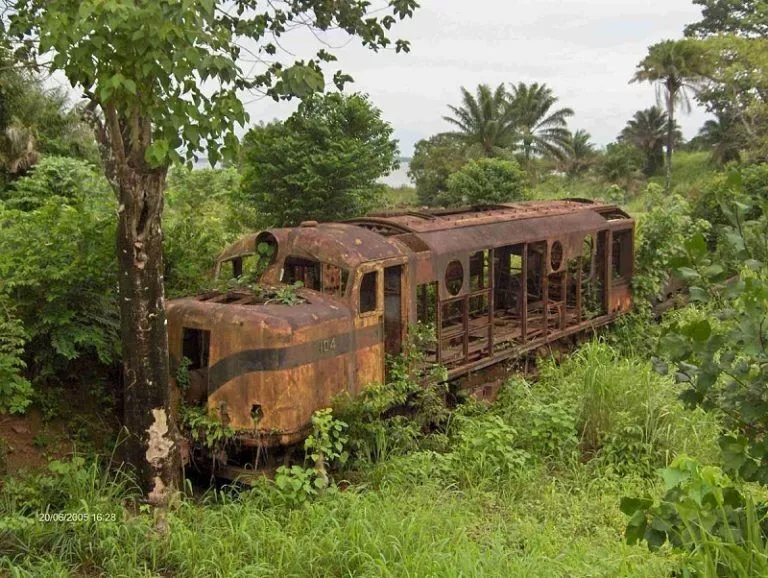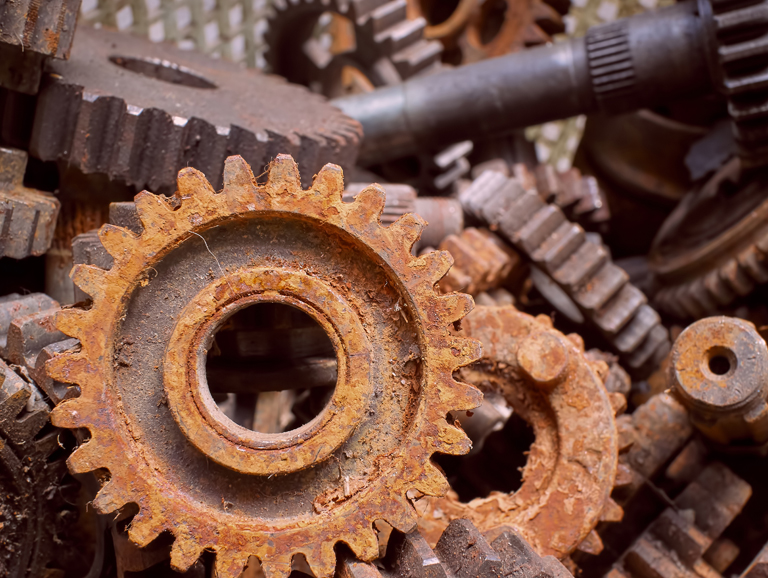Corrosion Homework, Assignment & Tutoring Help
Corrosion is a natural process that causes the deterioration of metals like iron when exposed to environmental elements. While it is not desirable, understanding corrosion is essential for preventing it and enhancing the longevity and strength of metals. If you're struggling with your corrosion assignments or need guidance on related topics, our expert team is here to provide comprehensive Corrosion Assignment Help, Corrosion Homework Help, and Corrosion Tutoring Help to ensure academic success.
What is Corrosion?
Corrosion is a chemical process that leads to the gradual deterioration of metals when they interact with environmental conditions. This reaction involves a metal surface interacting with gases or liquids in the surroundings, such as oxygen or water. Factors like temperature, acids, and salts can accelerate corrosion, causing metals to lose their strength and integrity over time.
Typically, corrosion converts metals into stable compounds like oxides, hydroxides, or sulfides. While all metals corrode to some extent, some, like iron, corrode faster than others. Certain metals, such as gold and platinum, are known for their resistance to corrosion. The process often involves electrochemical reactions where metals lose electrons to oxygen in the environment, leading to the formation of oxides.
There are several types of corrosion, including general attack corrosion (which erodes the entire metal surface), localized corrosion (which affects specific areas of the metal), pitting corrosion (which creates small holes in the metal), and crevice corrosion (which occurs in areas with stagnant fluid). Other types include galvanic corrosion (when different metals are in contact) and environmental cracking (which leads to cracking and brittleness under stressful conditions).
The global cost of corrosion is estimated at $2.2 trillion annually, affecting infrastructure like bridges, ships, and buildings. Corrosion can also cause health issues, such as blood poisoning from corroded implants or problems related to radioactive waste disposal.
Corrosion Prevention Methods
There are several ways to prevent corrosion. These include forming alloys with slow corrosion rates, galvanization (coating the metal with a more reactive metal to protect it), electroplating, and using non-metallic coatings like paints, oils, and polymers. These methods help protect metals from exposure to the elements, ensuring their longevity and performance.
Online Corrosion Homework Help
Corrosion is a key subject in materials science and engineering, and understanding it is critical for students. Whether you're working on an assignment or need help understanding corrosion's complex processes, our Corrosion Homework Help is available to assist you with detailed explanations and solutions.
Corrosion Homework & Assignment Assistance
Corrosion is a captivating but complex topic that may be difficult to tackle without a solid understanding. Students often face challenges in completing assignments on time due to time constraints or lack of resources. With the help of our expert tutors, you can easily grasp corrosion concepts and complete your assignments efficiently. Our Corrosion Assignment Help is designed to assist you with your homework, offering professional solutions to help you excel academically.
Get Online Corrosion Assignment Help!
If you're struggling with corrosion assignments, our team is here to help. We have experienced tutors who are well-versed in corrosion-related topics and can provide you with reliable resources, explanations, and solutions. Reach out now for expert Corrosion Assignment Help and see an improvement in your grades.
The Process of Getting Help
We understand that student life can be overwhelming. That's why we've made it easy to get Corrosion Homework Help with just a few steps. Simply upload your assignment, get an estimated quote, and receive a completed solution within your specified timeframe. With our team’s expertise, you can rest assured that your assignments will be completed on time and to the highest standards, setting you apart from your peers.
Get Online Corrosion Tutoring
While completing assignments is important, long-term understanding of corrosion is key to mastering the subject. Our Corrosion Tutoring Help is designed to provide you with personalized learning experiences. We offer various tutoring options, including screen sharing, board learning, digital pen-based teaching, and video conferencing. This interactive approach ensures that you fully understand corrosion concepts and are well-prepared for exams and projects.
Visit onlinecollegehomeworkhelp.com to access our professional Corrosion Assignment Help and tutoring services today. Let us help you understand corrosion and improve your academic performance.
Get Online Corrosion Assignment Help
Corrosion Homework and Tutoring Help
Corrosion, which weakens and damages metals like iron, is a natural but undesirable process. To prevent corrosion and enhance the strength of metals, it's important to understand the underlying processes. Our expert tutors are available 24/7 to help you with your corrosion homework, assignments, and tutoring needs.
Branches of Corrosion where we provide Homework & Assignment Help
Corrosion is a broad field, and it can be categorized into various branches based on the mechanisms and conditions that lead to material degradation. Here are some of the key branches of corrosion:
- Uniform Corrosion: Uniform corrosion is the most common and straightforward type, where the material degrades evenly across its surface. This type of corrosion is often seen in metals exposed to environmental conditions like air, water, or chemicals. It typically results in a gradual loss of material.
- Galvanic Corrosion (Electrochemical Corrosion): Galvanic corrosion occurs when two different metals come into electrical contact in the presence of an electrolyte (such as water). One metal acts as the anode and corrodes, while the other acts as the cathode and is protected.
- Pitting Corrosion: Pitting corrosion is a localized form of corrosion that leads to the formation of small holes or pits on the metal surface. It often occurs in metals that are passivated, like stainless steel, and is typically caused by the presence of chlorides or other aggressive ions.
- Crevice Corrosion: Crevice corrosion occurs in confined spaces where the flow of oxygen is restricted, such as under gaskets, bolts, or between two metal surfaces. The reduced oxygen concentration in the crevice leads to a chemical imbalance, resulting in localized corrosion.
- Stress Corrosion Cracking (SCC): Stress corrosion cracking is the cracking of a material due to the combined effects of tensile stress and a corrosive environment. SCC can lead to the rapid failure of materials even under relatively low stress levels, making it a significant concern in high-stress environments like pipelines, aircraft, and pressure vessels.
- Intergranular Corrosion: Intergranular corrosion occurs along the grain boundaries of a material. It is typically associated with alloys like stainless steel and can be caused by the precipitation of certain phases along the grain boundaries, which makes them more susceptible to corrosion.
- Fretting Corrosion: Fretting corrosion occurs when two surfaces are in relative motion and experience small oscillatory movements. This type of corrosion is caused by the repeated movement, which leads to the breakdown of the protective oxide film on the metal surface, making it more susceptible to further corrosion.
- Microbiologically Influenced Corrosion (MIC): Microbiologically influenced corrosion is caused by microorganisms such as bacteria, fungi, or algae that form biofilms on metal surfaces. These biofilms can create localized corrosive environments that accelerate metal degradation.
- Erosion Corrosion: Erosion corrosion occurs when the mechanical action of a fluid or gas erodes a metal surface, making it more susceptible to chemical corrosion. This is especially problematic in systems where high-velocity fluids (such as water or gas) flow over metal surfaces.
- Atmospheric Corrosion: Atmospheric corrosion occurs when metals corrode due to exposure to atmospheric elements such as oxygen, moisture, pollutants, and salts. This type of corrosion is common in outdoor environments, particularly in marine and industrial regions.
- Liquid Metal Embrittlement (LME): Liquid metal embrittlement is the process where metals become brittle due to the infiltration of liquid metal into their grain boundaries. This can cause cracking and failure, especially when the metal is exposed to high temperatures and certain metals like zinc, lead, or mercury.
- Alkaline Corrosion: Alkaline corrosion occurs in highly basic or alkaline environments. Some metals, particularly aluminum and zinc, are prone to corrosion in alkaline conditions, often forming soluble hydroxides.
- High-Temperature Corrosion: High-temperature corrosion happens when materials are exposed to extreme heat combined with reactive gases (like oxygen or sulfur compounds). It is commonly seen in industrial processes, such as power plants and engines.
FAQs Related to Corrosion Homework and Assignment Help
- Uniform Corrosion: Occurs evenly over a material’s surface.
- Pitting Corrosion: Results in localized holes or pits on a metal surface.
- Galvanic Corrosion: Happens when two different metals come into contact in an electrolyte.
- Crevice Corrosion: Takes place in confined spaces where oxygen is limited.
- Corrosion fundamentals and mechanisms
- Types of corrosion and their effects
- Corrosion prevention techniques
- Corrosion testing methods
- Case studies and real-world applications



